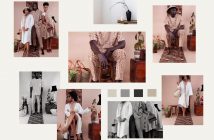
Faux locs made a BIG appearance in 2015, with celebrities like Ciara, Meagan Goode, Brandy, Zandaya Coleman, and Jhene Aiko wearing them funky in street style, and classy on the red carpet. For many it was seen as a great leap in bringing black hair into mainstream conversation, for instance: the Zendaya vs Juliana Ransec (Fashion Police) incident, the fact that Ransec’s offensive comments were not swept under the carpet, but instead made big news, suggests that it’s not as easy to get away with expressing ignorant and unfounded opinions on back hair as it was in the past. Some would say that faux locks being worn by so many celebrities is a step in the direction towards unshrouding the style of the myths about the kind of people who wear dreadlocks, and the lifestyle that wearing dreadlocks supposedly comes with.
However, not everybody was quite as impressed with this new ‘trend’. Many in the dreadlock community feel that it is insulting to the culture of dreadlocks, which is all about the natural and organic lifestyle. Some went as far as saying that it is ‘cheating the process’, why not just grow your hair naturally?

While it is true that the wearing of dreadlocks is often accompanied by a natural and spiritual lifestyle, it is not always the case. Just as it is not always the case that a black women who wears her natural afro hair, identifies herself as ‘conscious’, or trying to make a political statement; it may just be the way she chooses to wear her hair, be it for convenience sake, or for aesthetic purposes. So in that case, how practical is it for us-as black women- to try to police who amongst us is authentic in the hairstyle choices they make, especially pertaining to natural hair styles?
A lot of people think that dreadlocks originate from Rastafarianism, however while it is true that it was the popularity of reggae music that brought visibility to the style, dreadlocks go far beyond that; they go as far back as the bible, and possibly even further. Dreadlocks have been worn for centuries as a sign of religious and spiritual conviction:
- In Hinduism, dreadlocks represent the renunciation of worldly pleasures, and all forms of
- In Rastafarianism the growing of one’s locks, is accompanied by the renunciation of soda, alcohol and cigarettes.
- In the Hebrew Bible, there is a vow that requires man and women to abstain from wine, intoxicating liquors, grapes, or anything with traces of grapes, as well as from cutting one’s hair, instead to allow the ‘locks’ of one’s hair to grow.

These are just some of the practices that have accompanied the wearing of dreadlocks, in different religious and spiritual beliefs, it proves that dreadlocks go further in history than we can trace. So when people say that those who wear faux locks are disrespecting the ‘culture’ of locks, I’m wondering which culture they are referring to. We can safely assume that they are talking about the Rastafarian culture, and if so, just the fact that they assume that Rastafarianism is the only lock culture, denotes that they themselves are not aware of the broad and very long history of dreadlocks. If anything, the ‘dreadlock culture’ can be said to be one of deep spiritual devotion; as that is the red thread that is found amongst all of the dreadlock wearing cultures; and yet that is not the lifestyle that most modern dreadlock wearers follow.
Personally, though I have never worn faux locks, I definitely plan to try out the style, I think it is a great protective style, and honestly, I would rather wear faux locks than a straight hair weave, and I would rather see other black women making the same choice. It may not be their real natural hair, but it is still showing black women that they have other options of how to wear their hair; it may even inspire some to decide to actually go and get their hair locked naturally.
What do you think? Do you think people should respect the ‘culture’ and process of locks by getting them done naturally? Or are you feeling the faux locks trend?






